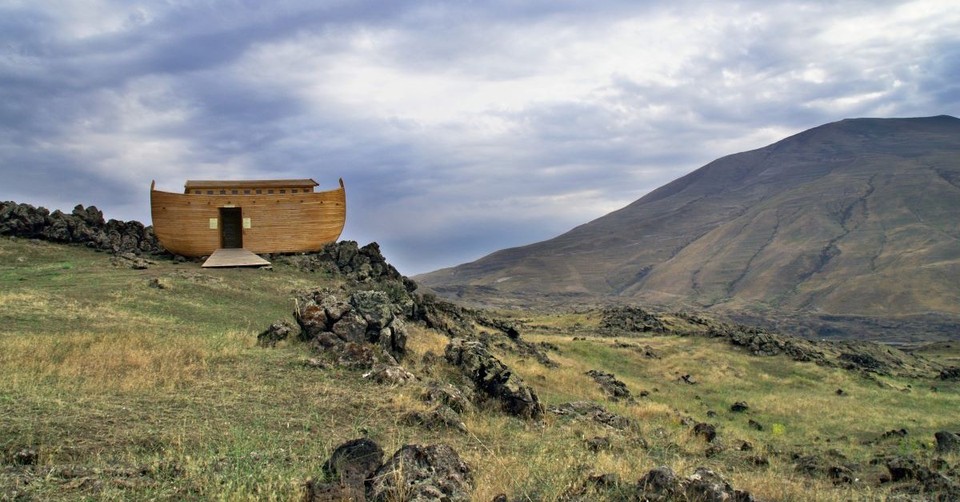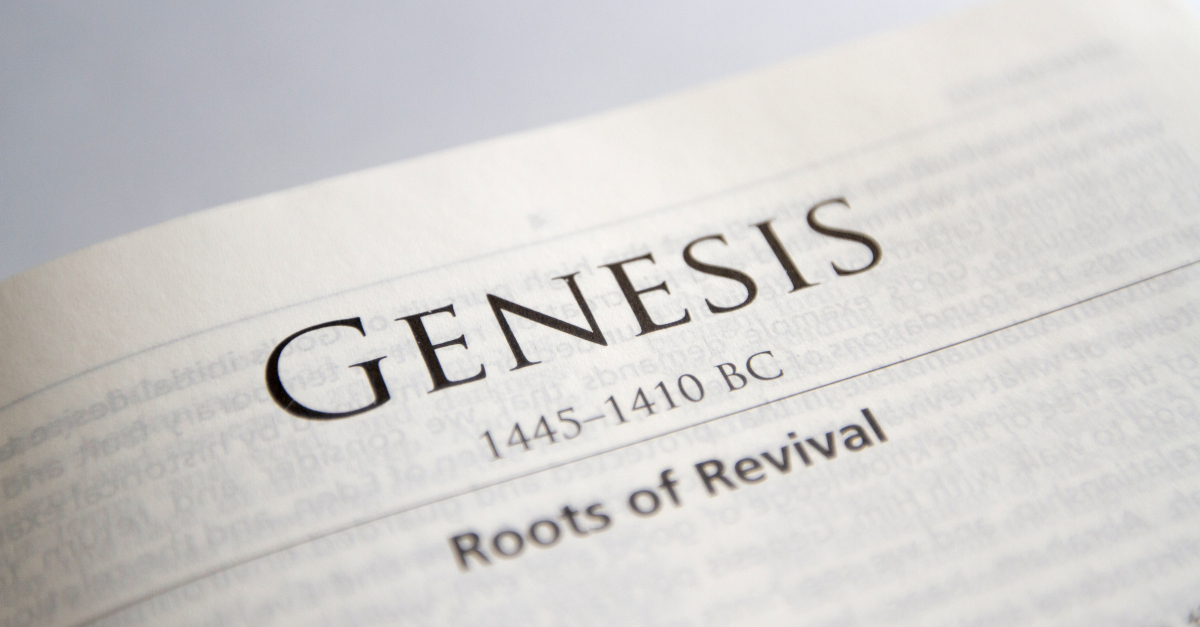How Many Sons Did Noah Have and What Do We Know About Them?

The Book of Genesis introduces us to a number of widely known stories: The Creation, The Fall, Cain and Abel, and the Tower of Babel. Also included in this book is another popular tale, the story of Noah and the Flood. While many pastors and everyday believers can tell you a thing or two about Noah, far fewer people know anything about his three sons - Shem, Ham, and Japheth. Each of them had their own contributions to their father, and to humanity following the Flood.
Before we explore the significance of Noah’s sons in the Bible and aboard their father’s ark, let’s reexamine the importance of Noah and the Flood.
Like many popular characters in the Bible, people who had direct contact with God are often the ones writing the stories we read. Often, they are even featured in the story. In this case, Moses is the attributed author, and Noah’s story is recounted by others in subsequent books: Matthew, Luke, and 2 Peter. Being himself a man who had a close relationship with God, Moses writes about another man who was exemplary in comparison to those around him.
Noah’s father Lamech said this about his son, “He will comfort us in the labor and painful toil of our hands caused by the ground the Lord has cursed.” (Genesis 5:29).
He went on to serve humanity, and most importantly God. Most of us know the story, either from childhood Bible school, where we learned about Noah and the animals, or from a Sunday sermon where our preacher rehashed the story.
Who Were Noah's Three Sons and What Are They Known For?
Noah’s sons are not described as having built the ark with their father, though we can presume they did. On the other hand, they are described in greater detail as heading specific tribes after the flood. Genesis 10 explains some of the lineages that resulted from the three brothers. Japheth had seven sons, Ham had four, and Shem was blessed with five.
From each of these men, their descendants went on to repopulate the Earth, resulting in varying languages and cultures throughout the world. This also reminds us that our modern idea of race is not real.
A major distinction happened between Noah’s sons. Ham was the start of what would become the nation of the Canaanites. Conversely, Shem’s descendants went on to inherit the Promised land. Japheth’s people lived peacefully with those from Shem’s lineage within neighboring areas.
An Overview of Noah, His Sons, and the Flood
Noah’s story includes four important elements: living beings, a flood, an ark, and God. During one of the many times humanity, or parts of humanity, turned their backs on God, there were consequences. In this particular biblical story, the consequence is a divine flood covering the Earth. According to the story, the only humans God keeps are Noah, his sons, and their wives. The way they escape disaster is by following God’s instructions. They build an ark and wait for the flood to subside. Life on Earth mostly ended during the Flood. However, after the event, life is able to flourish again, for people and for animals.
Noah’s story serves to exemplify how we might not only serve God, but garner insight into God’s character.
He is first introduced at the end of Genesis 5 in relation to his father, Lamech. As described in the passage, Noah is one of many sons and daughters, though he himself is the eldest. His mention in this chapter is very brief, thus, the details about his own sons are quick to follow. We quickly learn his age in the story too - 500 years. Either before or after he was 500, Noah fathered his children. No other details are mentioned about Noah’s family.
Noah’s story begins in earnest in Genesis 6. Here we read details about corrupt humanity on Earth. “The sons of God” and “The Nephilim” who appear to be otherworldly beings are mentioned as being present on Earth (Genesis 6:4). Some of them have taken human wives. In conjunction with these details we read God say, “My Spirit will not remain with mankind forever, because they are corrupt” (Genesis 6:3). This separation from God, due to sin, served as a precursor for the incoming Flood.
However, Noah was set apart from humanity due to his righteous behavior (Genesis 6:9). This explains why God warns Noah of the impending flood and instructs him to build an ark. In the ark, Noah is to bring specified numbers of pairs of every animal, male and female. Likewise, he is allowed to bring his sons, and their wives, all of whom remain unnamed in the story. An undescribed amount of time passed as the ark was built. We can presume that Noah didn’t build the entire ark himself and likely worked in tandem with his sons and the rest of his family. The same would apply to gathering the animals. The flood came when Noah was 600 years old and lasted 150 days (Genesis 7:24).
Noah and his family survived the flood, but over the course of the event, there are no significant details revealed about Shem, Ham, or Japheth. Only after the flood are the sons given more of a spotlight. Though their presence in the Bible is not prominent, much like their father, their presence offers commentary on humanity and also God. Each of them is thus worth learning more about.
Here are 3 things to know about Noah’s sons in the Bible:

Photo Credit: ©Sparrowstock
1. What Did God Command of Noah’s Sons?
Following the events of the Flood, Noah and his sons reaped God’s blessing. We read in Genesis 9 that God granted them authority over all creatures and commanded them to be fruitful and multiply. That commandment is significant because those were the same words spoken to Adam and Eve. God blessed Adam by having his descendants spread across the land. God blessed Noah and his sons likewise. Their descendants populated the Earth, all serving as image-bearers of God.
2. Why Does Noah Curse One of His Sons?
Another occurrence after the flood was the events that resulted in Noah cursing one of his sons (Genesis 9:20-27). This began when Noah started a vineyard. During this endeavor, he became drunk on wine one day and was found naked in his tent. The first son to discover him was Ham. There are no details given as to Ham’s emotional response to seeing his father naked, but what he did next was tell his siblings. Upon hearing this, Shem and Japheth covered their father up, without exposing themselves to his nakedness. For their help and lack of exposure to him, they were blessed. Conversely, Ham was cursed by his father. Ham was suddenly rendered lesser than his two brothers.
3. Which of Noah's Sons Does Jesus' Lineage Come From?
After being blessed by his father, Shem’s lineage would later reap another blessing - the birth of Jesus. We learn this in Genesis 11, and though Jesus Christ is not mentioned by name, we see two other familiar names, Abram and Sarai.
What Can We Learn from Noah’s Sons?
Despite being background characters for most of the Flood, and having a very limited appearance in the Bible, there are lessons to learn from the three brothers.
Firstly, being in the background does not make us unimportant. Shem, Japheth, and Ham were not noted as being great men like their father. Still, God blessed them with living on the ark alongside their dad. They shared in whatever responsibility they played, though those details were not noted in Scripture. There’s a reason we read about them today, even if that detail is limited.
Secondly, we are to look after our family. Ham did not immediately help his father, and instead went to share the news with his father. Prior to him, there was familial conflict between Cain and Abel. And their conflict can be traced back to Adam and Eve. Whenever we see something wrong happening because of or to a loved one, we can step in to correct the situation.
Lastly, God said to be fruitful and multiply. Today, we understand that multiplying across the Earth is not limited to reproduction, but includes making new disciples. Whenever we go, live, or work, we can do the work of making disciples. Just as Shem, Ham, and Japeth served as the start of a long lineage, we too can create a lineage of believers for many generations to come.
Sources:
https://en.wikipedia.org/wiki/Flood_myth
https://arkencounter.com/noah/sons/
https://www.learnreligions.com/sons-of-noah-701191
Photo Credit: ©GettyImages/photostockam

Get in touch with him at aarondanthony.com and check out his debut short story anthology Honey Dreams on Amazon and Barnes and Noble.
Originally published July 21, 2021.




